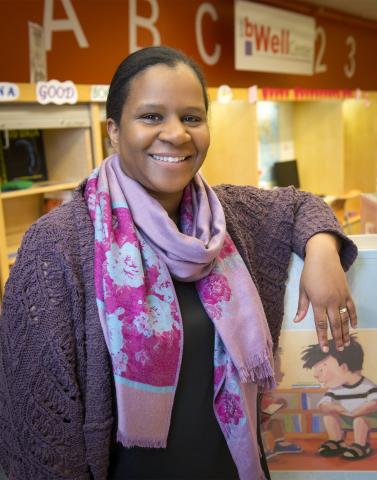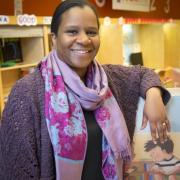
Blog author Renee Boynton-Jarrett, MD, ScD
We Say We Care About Kids. Do We Really Mean It?
This commentary was originally published on the TalkPoverty blog (http://TalkPoverty.org), a project of the Center for American Progress.
Americans are fond of saying our children are our nation’s most valuable resource. But if our actions are the measure, do we really mean it?
Mounting research evidence from neuroscience, public health, economics and social science supports a simple conclusion: Investing in early childhood, through affordable early childcare and enrichment opportunities, pays dividends for the individual and for society. Yet we know not all children have an opportunity to experience high-quality early childcare—and it’s because we have chosen not to support universal access. Scientific research supports the long-term value of creating the conditions children need for a strong start. We also know how to scale and support effective social and educational programs and make them accessible.
Why, then, aren’t we committed to ensuring these opportunities?
Political discussions about early childhood generally center on parents’ choices and responsibilities. We expect parents to make good decisions for their young children. But wouldn’t a tighter safety net of opportunities and support make good decisions easier.
We need a new conversation, one that places what is optimal for children at the center.
That’s what "The Raising of America," a new documentary series, is trying to do. I’m proud to be a part of the film, which probes how conditions faced by young children and their families form the foundation for future success—and brings to light the consequences of our failure to provide adequate support for parents raising young children.In recent years, medical professionals have learned health is profoundly influenced by factors outside the health-care system. Study after study has shown social determinants influence the ways our biological systems operate.
We also know children who live in environments with a lot of concentrated disadvantage and in high-stress home environments are most likely to have adverse childhood experiences, or ACEs. A higher prevalence of ACEs can affect their emotional regulation, which in turn can impair optimal learning.
Yet with all of this knowledge, we still haven’t bridged the gap between data and practice.
It strikes me that as a society we have accepted that the challenges parents face are all “just part of raising a child.” That the stress of trying to balance time and cost against what’s best for our kids is now the norm. That it’s not imperative to offer all children the opportunity to experience the high-quality early care they need to succeed.The truth is that families cannot do it alone. It’s my hope that the larger conversation we’re launching—through ongoing research and with “The Raising of America”—will prompt a closer look at how we can develop an opportunity agenda for our nation’s children and steer a course that puts children front and center.
I hope this is the moment when society says, “This is not our goal. It doesn’t have to be this way. We can change the experience of childhood. Let’s get started.”


The views and opinions expressed in this post are those of the author(s) and do not necessarily reflect those of MomsRising.org.
MomsRising.org strongly encourages our readers to post comments in response to blog posts. We value diversity of opinions and perspectives. Our goals for this space are to be educational, thought-provoking, and respectful. So we actively moderate comments and we reserve the right to edit or remove comments that undermine these goals. Thanks!